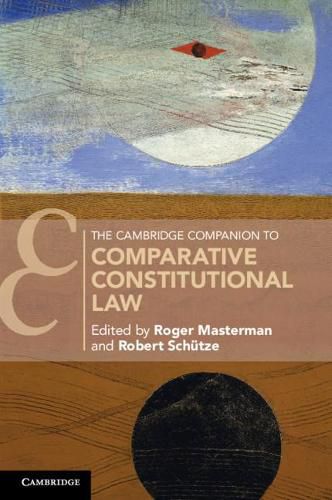Readings Newsletter
Become a Readings Member to make your shopping experience even easier.
Sign in or sign up for free!
You’re not far away from qualifying for FREE standard shipping within Australia
You’ve qualified for FREE standard shipping within Australia
The cart is loading…






What is the purpose of comparative constitutional law? Comparing constitutions allows us to consider the similarities and differences in forms of government, and the normative philosophies behind constitutional choices. Constitutional comparisons offer ‘hermeneutic’ help: they enable us to see ‘our’ own constitution with different eyes and to locate its structural and normative choices by references to alternatives evident in other constitutional orders. This Cambridge Companion presents readers with a succinct yet wide-ranging companion to a modern comparative constitutional law course, offering a wide-ranging yet concise introduction to the subject. Its twenty-two chapters are arranged into five thematic parts: starting with an exploration of the ‘theoretical foundations’ (Part I) and some important ‘historical experiences’ (Part II), it moves on to a discussion of the core ‘constitutional principles’ (Part III) and ‘state institutions’ (Part IV); finally it analyses forms of ‘transnational’ constitutionalism (Part V) that have emerged in our ‘global’ times.
$9.00 standard shipping within Australia
FREE standard shipping within Australia for orders over $100.00
Express & International shipping calculated at checkout
What is the purpose of comparative constitutional law? Comparing constitutions allows us to consider the similarities and differences in forms of government, and the normative philosophies behind constitutional choices. Constitutional comparisons offer ‘hermeneutic’ help: they enable us to see ‘our’ own constitution with different eyes and to locate its structural and normative choices by references to alternatives evident in other constitutional orders. This Cambridge Companion presents readers with a succinct yet wide-ranging companion to a modern comparative constitutional law course, offering a wide-ranging yet concise introduction to the subject. Its twenty-two chapters are arranged into five thematic parts: starting with an exploration of the ‘theoretical foundations’ (Part I) and some important ‘historical experiences’ (Part II), it moves on to a discussion of the core ‘constitutional principles’ (Part III) and ‘state institutions’ (Part IV); finally it analyses forms of ‘transnational’ constitutionalism (Part V) that have emerged in our ‘global’ times.